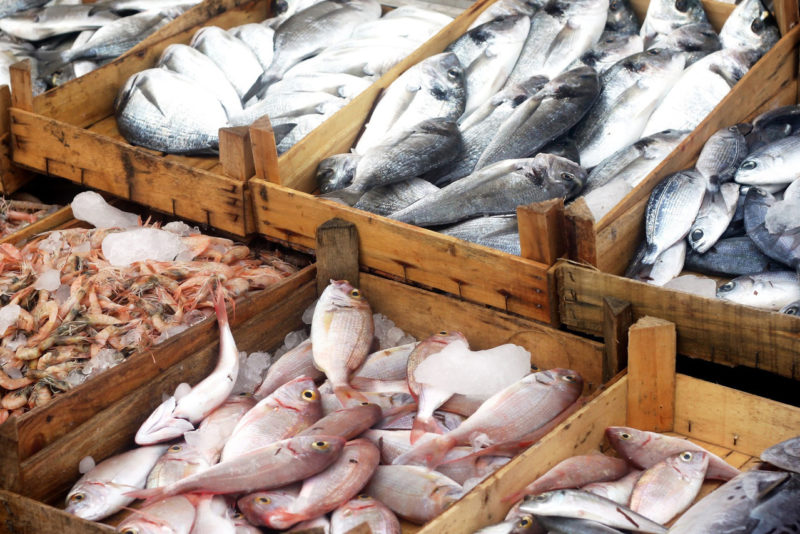The United States imported more foreign seafood than ever in 2017, according to NOAA.
The U.S. imported more than 6 billion pounds of seafood valued at more than $21.5 billion in 2017. U.S. exports paled in comparison — more than 3.6 billion pounds of seafood were exported, valued at $5.4 billion.
According to NOAA, the United States imports more than 90 percent of the seafood the public consumes, despite its own active industry. The amount of seafood exported for processing and reimported is unknown, but considered “significant” by NOAA.
Commerce Secretary Wilbur Ross has identified reducing this deficit as a priority for the government. One prominent strategy would be increasing the amount of aquaculture-based farming Jennie Lyons, a NOAA spokeswoman, told the Associated Press.
The United States trades in seafood with countries all over the world, and the countries it buys the most from include Canada, China and Chile. Major buyers of U.S. seafood include China, Japan and South Korea.
While markets in China have been growing, those markets are at risk as an all-out trade war seems plausible between China and the United States. On June 15, U.S. and Chinese officials announced a bundle of tariffs, each targeting the other nation’s exports.
President Donald Trump announced a 35 percent tariff on all Chinese goods containing “industrially significant technologies,” an estimated $50 billion worth of Chinese goods. China responded with retaliatory 25 percent tariff on various U.S. exports, including many seafood products. Roughly 170 seafood products have been targeted, including salmon, lobster, shrimp, cod, tuna, pollock, oysters, scallops, Dungeness and snow crab, blackcod and geoduck.
Seafood and fishing industry leaders from all U.S. coasts spoke out against the latest tariffs soon afterward, saying the policy will cost American jobs.







